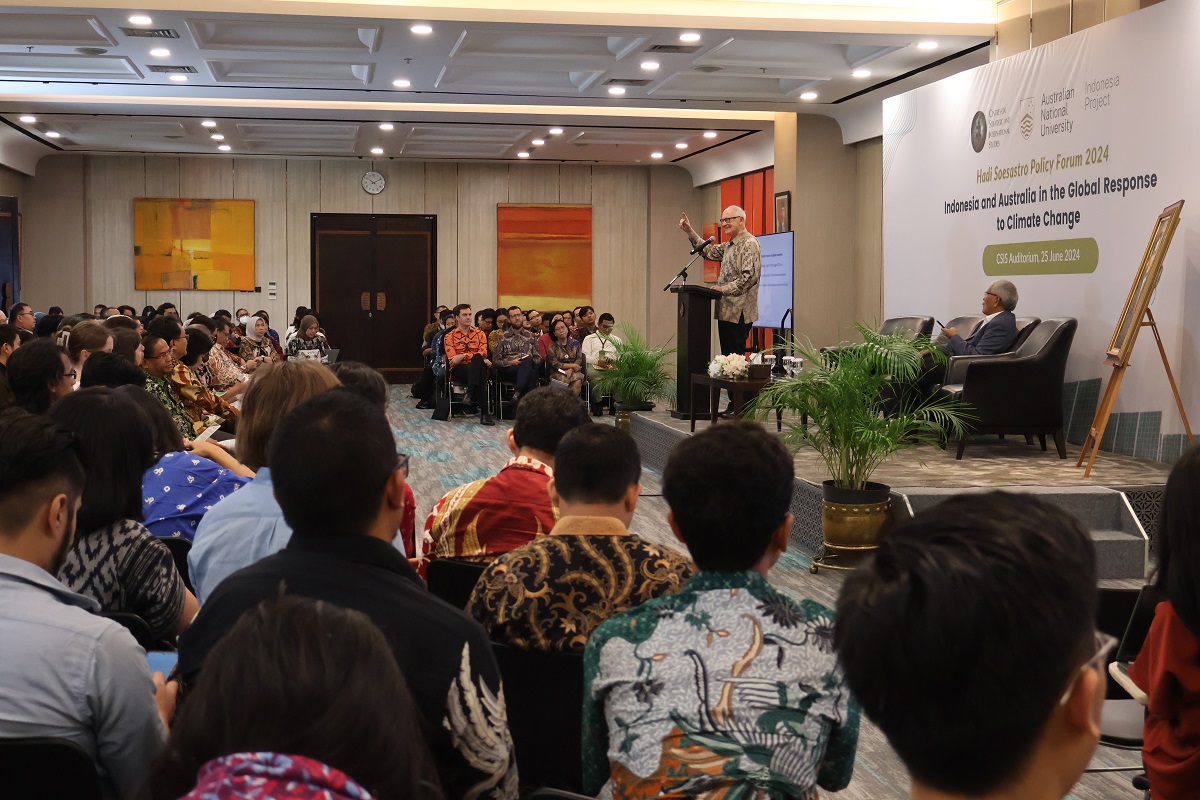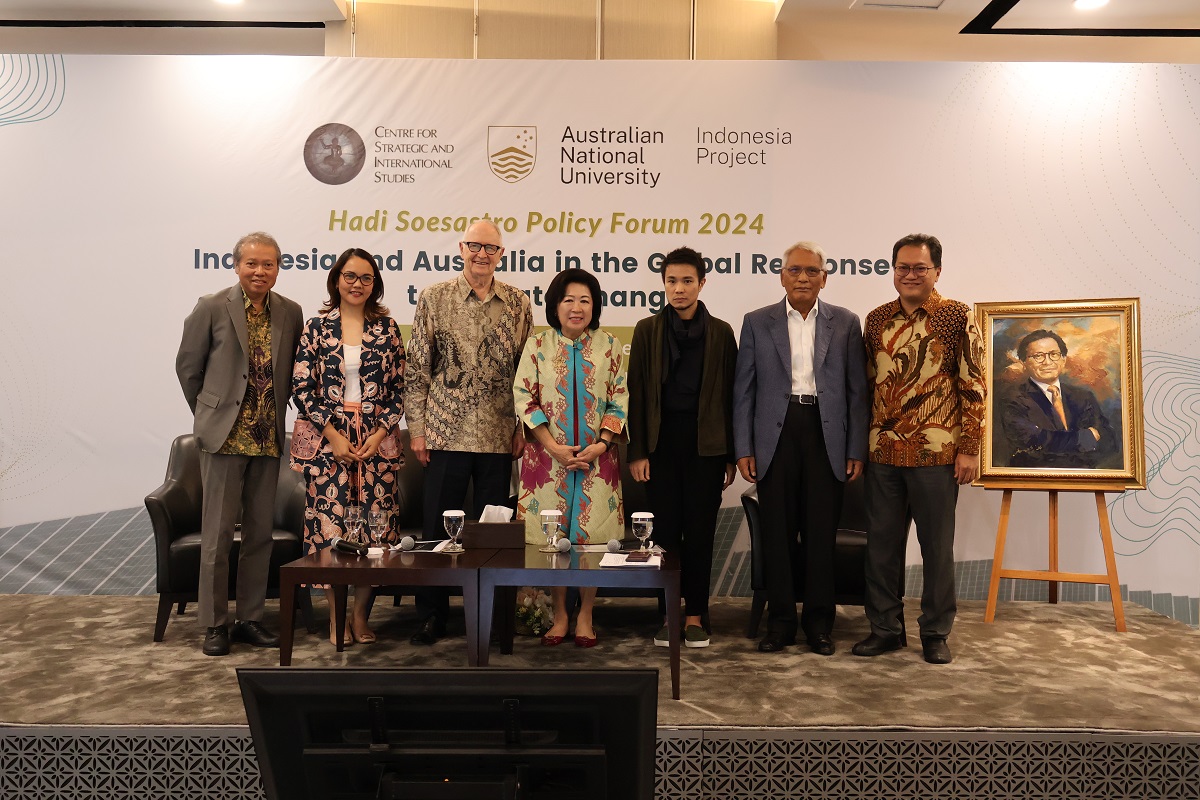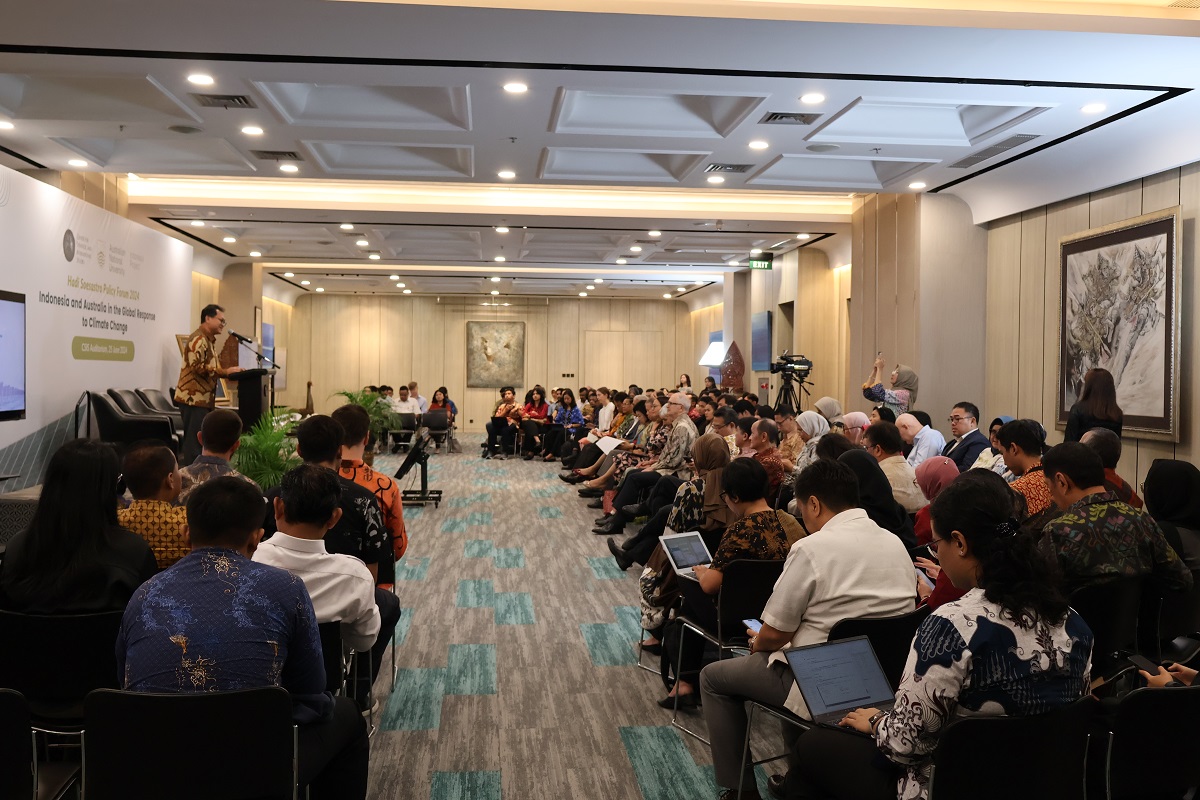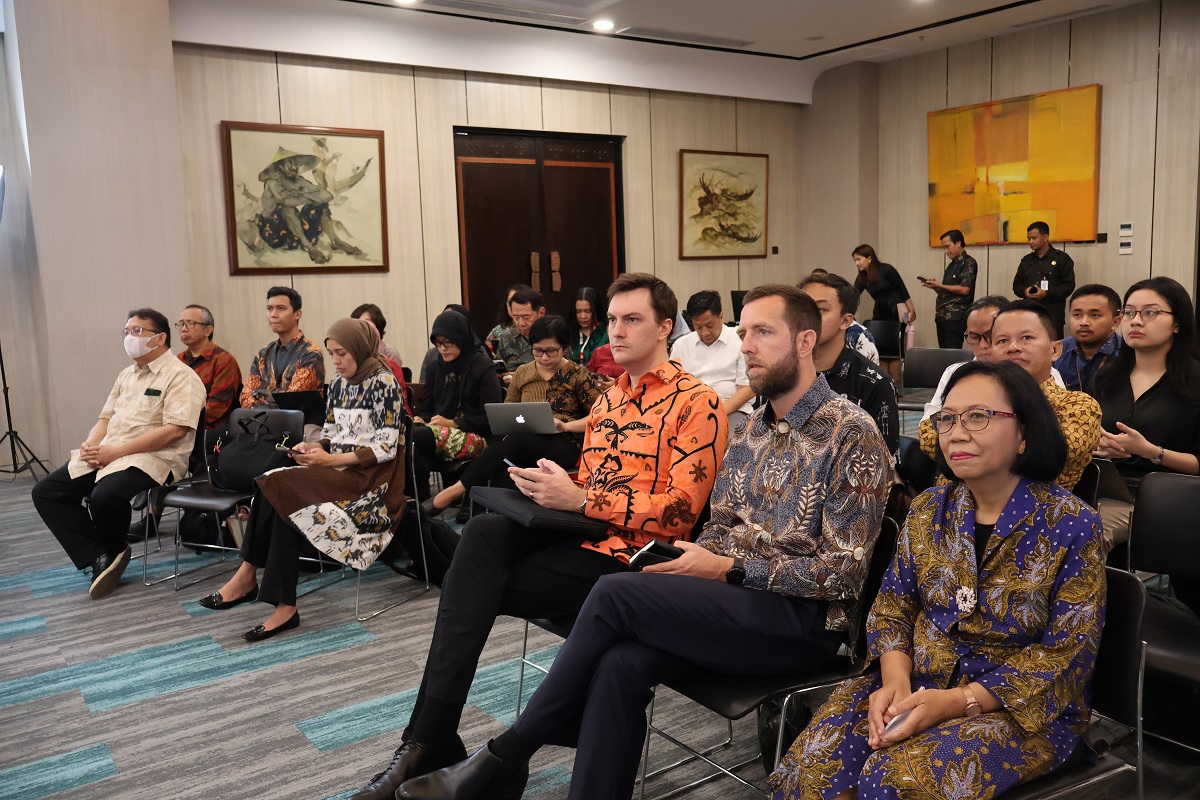Centre for Strategic and International Studies (CSIS) Indonesia and ANU Indonesia Project hosted the 2024 Hadi Soesastro Policy Forum on Tuesday, 25 June 2024.. Professor Ross Garnaut delivered a lecture on Indonesia and Australia in the global response to climate change, with discussants Professor Mari Pangestu (CSIS and Universitas Indonesia), Dr. Masyita Crystallin (Special adviser to Indonesia’s Minister of Finance) and moderator Professor Djisman Simandjuntak (Chair, CSIS Board of Directors and Rector of Universitas Prasetiya Mulya).
Coverage by The Jakarta Post: click here
KEY POINTS:
- Professor Ross Garnaut highlighted the significant roles of Indonesia and Australia in addressing global climate change. Both countries are major carbon emitters and coal exporters, facing direct and regional risks from climate change. Professor Garnaut stressed the importance of concerted unilateral mitigation and open regionalism, drawing on Professor Hadi Soesastro’s ideas. He proposed cooperative measures, such as keeping trade open, rebuilding APEC, and establishing a free trade agreement for environmental goods. The potential for interconnected electricity infrastructure between Indonesia and Australia was also discussed, which could support zero-carbon goods production and open high-value markets.
- Discussions from Professor Mari Pangestu and Dr. Masyita Crystallin underscored the opportunities for green, just, and inclusive growth in Indonesia. The importance of policy reforms, macroeconomic measures, and sector-specific policies to manage the transition and ensure inclusiveness are highlighted. Financial aspects of climate change mitigation and adaptation were also discussed, highlighting the severe global risks posed by climate change and the need for substantial investments in the net-zero transition. Overall, the presentations emphasized the need for policy reforms, financial investments, and international cooperation to effectively mitigate and adapt to climate change impacts.
SUMMARY
- Hadi Soesastro was one of the finest international public intellectuals of his generation through the Western Pacific region. Australia and Indonesia each have large roles to play in the global effort to stop catastrophic climate change. Cooperation in developing new zero-carbon export industries can increase the chances and lower the costs of the world achieving net zero emissions in time. Hadi Soesastro’s thoughts on concerted unilateral action and on Open Regionalism are essential to a global solution.
- The 2024 Hadi Soesastro Policy Forum speaker is Professor (Emeritus) Ross Garnaut AC. Professor Garnaut is an economist whose career has been built around the analysis of and practice of policy connected to development, economic policy and international relations in Australia, Asia, and the Pacific. He has held senior roles in universities, business, government and other Australian and international institutions.
- In his lecture, Professor Ross Garnaut emphasized the critical role that Indonesia and Australia play in addressing global climate change. He highlighted the increasing threats posed by the failure to mitigate climate change effectively, geopolitical tensions, and protectionist policies in developed countries. These factors contribute to the fragmentation of international trade and economic growth, which in turn hampers global climate action.
- Garnaut drew on the ideas of Professor Hadi Soesastro, stressing the importance of development cooperation and open regionalism. He argued that concerted unilateral mitigation, where countries independently commit to climate goals within a global framework, is essential. He noted the progress made since the Paris Agreement but acknowledged that it has been insufficient and too slow.
- Australia and Indonesia, as significant carbon emitters and major coal exporters, have substantial stakes in global climate success. Both countries are facing direct and regional risks from climate change, and powerful fossil fuel interests influence their policies. Garnaut proposed several cooperative measures, including keeping trade open, rebuilding APEC, and establishing a free trade agreement for environmental goods.
- He also highlighted the potential for an interconnected electricity infrastructure between Indonesia and Australia, which could support the production of zero-carbon goods and open access to high-value markets. Additionally, Garnaut called for domestic reforms in Indonesia, such as removing carbon subsidies and introducing carbon pricing, which, in cooperation with Australia, could strengthen both economies and accelerate decarbonization.
- Garnaut concluded by discussing the concept of an Australia-Indonesia Supergrid, which would link the two countries’ high-voltage direct current grids. This interconnected system would balance renewable energy and enhance trade, extending benefits to Papua New Guinea and Timor Leste, and potentially linking to continental Asia via Sumatra-Singapore. This vision underscores the potential for significant development gains through regional cooperation and infrastructure integration.
- In response, Professor Mari E. Pangestu highlighted the opportunities for green, just, and inclusive growth in Indonesia. She stressed the importance of policy reforms, macroeconomic measures, and sector-specific policies to manage the transition and ensure inclusiveness. Professor Pangestu also emphasized the role of bilateral, sub-regional, and regional cooperation, particularly between Indonesia and Australia, in achieving sustainable development goals. She pointed out that Indonesia’s commitment to unconditional and conditional emission reductions and the net-zero target by 2060 or earlier are crucial steps towards this goal. She also discussed the potential impact of carbon pricing and the reallocation of subsidies towards investment in green growth.
- Dr. Masyita Crystallin focused on the financial aspects of climate change mitigation and adaptation. She highlighted the severe global risks posed by climate change and the need for substantial investments in the net-zero transition. Dr Crystallin pointed out that emerging countries like Indonesia are more vulnerable to the effects of climate change despite being less responsible for it. Therefor international cooperation in reducing climate impacts and the need for a fair and efficient climate finance system is important. She also discussed Indonesia’s leadership role in international forums, such as the G20 and ASEAN, in promoting sustainable finance and climate action. Indonesia has made commitments to reducing emissions through various mechanisms, including carbon pricing and the Energy Transition Mechanism (ETM).
- Overall, the presentations at this year’s Hadi Soesastro Policy Forum underscored the importance of cooperation between Indonesia and Australia in addressing climate change and highlighted the opportunities and challenges in achieving green, inclusive, and just growth. The speakers emphasized the need for policy reforms, financial investments, and international cooperation to effectively mitigate and adapt to climate change impacts.









